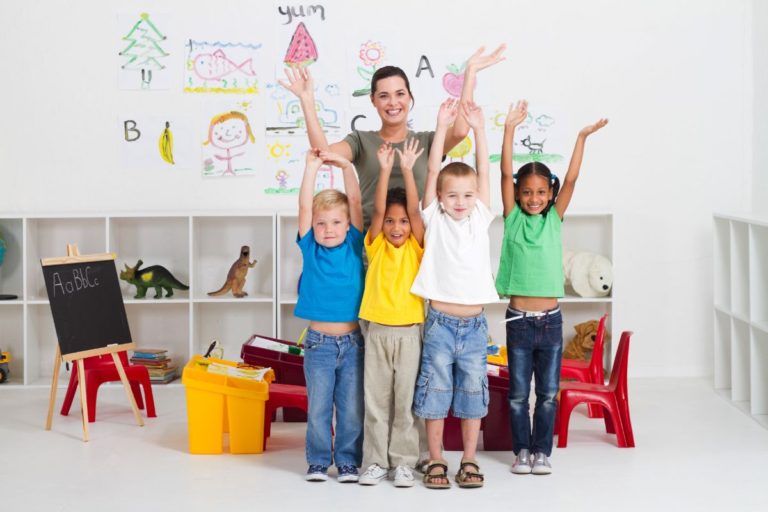
As parents and caregivers, we do our best to protect our children from unpleasant things as much as possible, but the reality is that, most children do not understand why things are changing around them. Children often continue to ask to see their grandparents, teachers and their friends, not understanding that gatherings put them at risk.
Just like adults, when children experience or hear of something unusual, they have many questions. Sometimes difficult questions can take parents by surprise, so it is a good idea to plan, especially when the questions are about more pressing topics for children. Right now, we parents are trying our best to navigate our families through this Coronavirus Pandemic. Although we are learning daily more and more about this coronavirus, the illness it causes, and the resources we need to fight it, there is still much we do not know and that is unsettling. Our kids and grandkids’ worlds have been turned upside down. Their daily routines are disrupted, family vacations have been cancelled, and their “jobs” (school and preschool) suspended. For many, their parents are now working from home, and it seems everyone is worried about the future. How do we even begin to talk to our children and reassure them?
Here are a few suggestions to help build the resilience that we all need to get through this:
Be reassuring: As a parent, it is normal to be anxious about the uncertainty that lies ahead, both with regard to our collective health and the economy. These concerns are real. But reassure your children that many doctors, nurses, and scientific experts around the world are working as hard as they can right now to keep us all safe and healthy.
Bring children into the conversation: Kids watch and observe their parents and caretakers. They watch your face, hear your tone of voice, and overhear your conversations. You know your children and their temperaments best.
Listen to them and talk with them about the current situation in age-appropriate language. Help them to understand, verbalize and organize their own feelings around the pandemic. Be curious about what they are thinking and feeling.
Help them sort facts from fiction: Find out what your children know and understand about what is happening. Correct any misinformation about “this new germ.” Be honest, but positive. Reassure them that fewer kids are becoming ill, and when they do, the illness is not as severe. Let them know that the illness is much more of a concern for older people or people who are already sick, which is why everyone needs to take precautions.
Help children have some control: Children need to feel in control and empowered to protect themselves in whatever way they can. This includes:
Appropriate, frequent hand washing (show them how and when).
Sneezing into their elbow, then washing their hands afterward. Helping to wipe down and disinfect surfaces. This reinforces their understanding of how this germ is spread through droplets.
Social distancing, explain what that is, but assure that it is not the same as “emotional distancing”.
Be mindful of media: Be especially thoughtful about exposure to television and media. Model good media consumption habits. Don’t have a steady stream of TV/news running in the background of your family life. Screen time for kids will no doubt be increased during home quarantines, self-isolation, and “sheltering in place.” This is an opportunity to watch together, to be thoughtful about media choices, and to explore media that are recommended for kids, including podcasts.
Be creative and grateful: There are silver linings to being together as a family in whatever form that is. As you settle into this “new normal”, you can strengthen existing connections with family, friends, and neighbors. Encourage your collective creativity and foster a sense of optimism and resilience. Talking with kids and showing them how to support and thank people on the frontlines of healthcare and other public services (as well as essential services like grocery stores), is a lesson in civics.
There will be many opportunities to continue the conversation with your children over these next days and weeks. Aim to provide them with realistic reassurance. Times will be tough, but life will go on. It always does” – Dr. Robin Williams former Medical Officer of Health for Ontario’s Niagara Region
So, what should families keep in mind when having these more challenging conversations?
- Be honest and keep it simple – Again, depending on your child, they may not need to know every single detail about COVID-19. Rather than saying too much, focus on the basic information. There is a germ going around that is making some people very sick. To keep everyone healthy, we are going to stay home and away from friends for a few days.
- Stay Child-Centered: It is essential to discuss these topics at the child’s level of understanding. Talking in abstract terms or using complicated phrases may only confuse. This does not mean that spiritual or religious beliefs should be omitted; only that they should be communicated at an appropriate level that your child can understand. Families are encouraged to be honest while still being compassionate and understanding. Children need a clear description that makes sense to them. Often this type of honest, clear, and simple explanation is enough for a youngster. Be patient and provide a consistent answer that provides the information the child is seeking.
Identify an emotion: While some children may display their emotions clearly, others may be a little harder to decipher. Silence, angry outbursts, an increase in anxious behaviors, or resistance to talk may all be signs of unsettling emotions inside. Do your best to put these emotions into words: “You seem upset that you cannot see your friends.” or “It is ok to be confused, this is a confusing time.
Use Real-World Examples: Families should also remember to use simple examples, especially with younger children, and try not to include too many concepts at one time. Reading a book about these types of subjects that is at an appropriate level for the child’s age can help you to start the conversation and will allow children to ask the questions they may be worried about.
Listen to Your Child’s Feelings: Empathic listening is all about helping someone to see that you understand them, and you have heard them. Breathe, stay present, and resist the urge to make your child’s troublesome feelings go away. Often, your child just needs a chance to be heard while they express their feelings.
Follow-up – Some kids take a while to digest information, some ask a million questions and others may not seem fazed at all. Regardless, leave the conversation open-ended: “Do you have any questions?” or “It looks like you have some questions.” And end with: “If you ever have any other questions or want to talk more about this, I am always ready to listen.”
Parents you are not alone!
We are all trying to navigate this unusual situation. We are all trying to parent the best we can with the ever-changing information around us.
You do not have to do or say the perfect thing at the perfect time. You do not need to have all the answers. You simply need to start the conversation. Be willing to listen. And do the best you can to be the strong center your children need.
Thank you to all of the people in our community who are first line workers that are helping us get through this difficult time, we appreciate you greatly. We wish all of you are safe and healthy during these difficult times; we are certainly missing the children and we cannot wait for things to be back to normal again soon. Enjoy these moments with your children and stay safe and healthy.
We cannot wait to see our classes busy again with your children’s chatter.
For more info, please email us at info@preschoolcanada.com
Stay safe,
Shima Hasan
Regional Director at Preschool Canada






